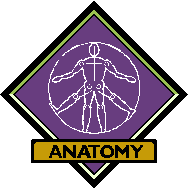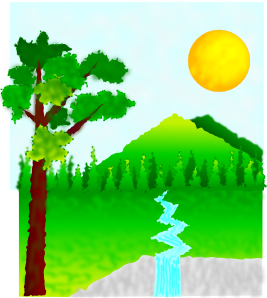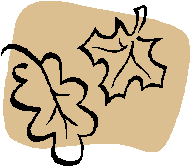click on icon to go to that website
|
||||||||||||||||||||||||||||||||||||||||||||||||||||||||||||||||
|
Field
Biology - BIOL 1110 Section 01
Summer 2015
This is a draft syllabus, changes may occur before summer session starts
Instructor: Joan
McKearnan
Office: S108
Phone numbers:
Office: 433-1232
E-mail:
joan.mckearnan@anokaramsey.edu
Website:
webs.anokaramsey.edu/mckearnan
Office hours:
TWTh 2:30-3:30pm, or by appointment
Meeting time:
Lecture TWTh 9-11am in S145
Lab TWTh 11:15-2:25pm in S130 Official communication:
Your e-mail
account registered on D2L is considered the official method of
communication in this course.
Please check it once a day for any announcements. Desire to Learn:
D2L will be
used for recording grades, posting lecture notes and news items, and
possibly depositing homework assignments
Required Textbook:
Blair, R. B.,
D. Flinn, A. R. B. Rager. 2008.
Big Wood, Big Rivers – University of Minnesota Extension Service:
St. Paul MN. Duffey, L. and
M. Hoff. 2008. All about Minnesota’s Forests and Trees: a primer.
Minnesota Department of Natural Resources.
St. Paul, MN. Big Woods Big Rivers Linnaeus List Optional Material:
Field Guides,
Binoculars, hip boots Course Description:
(Meets MnTC Goal 3 and 9) Introduction to
identification of native plants and animals. Emphasis is placed on
ecological relationships. Local and regional field trips are conducted
to study forest, grassland and aquatic ecosystems.
Learner Outcomes:
·
Demonstrate understanding of scientific theories and process.
·
Demonstrate an understanding of:
§
identification of native plants and animals
§
general principles of taxonomy
§
interactions between organisms at the community and ecosystem
§
analysis of forests, grassland and aquatic ecosystems
§
basic principles of natural ecosystem management
·
Explore human effects on ecosystems and evaluate management options
·
Analyze and reflect on the ethical dimensions of legal, social, and
scientific issues.
·
Demonstrate service to the community
Class activities:
Material is presented in lecture and in
active learning group activities.
Students will be expected to read assigned material before coming
to class and will be quizzed twice a week on that material.
Labs will be conducted both inside and outside and students
should be prepared for outdoor activities on days indicated in the
schedule. There is also a
service learning component which students will undertake mostly outside
of scheduled class time.
Actual time spent in lab and lecture each day may vary.
Grading:
Lecture grade is based on two lecture
exams. Quizzes on reading
material are given each Tuesday and Thursday, except where noted in the
schedule. Quizzes are first
given to the individual and then to your small group.
Finally, each student must participate in a 10-hr service project
during the semester.
Further information will be provided later on the service projects. The grading opportunities in lecture are:
2 lecture exams - 50 pts. each
100 pts.
8 pre-lecture quizzes - 5 pts. each
40 pts.
Plant & Animal Identification Exams- 25 pts
each
50 pts.
Small group lab activities
50 pts.
Capstone Service project
60 pts.
Total
300 pts. Your final grade will be based on the sum of your
lecture points and the letter grade will be determined by the following
percentage criteria:
90-100% = A
> 270 pts.
60-69% = D
180-209.5 pts.
80-89% = B
240-269.5 pts.
< 60%
= F
<180 pts.
70-79% = C
210-239.5 pts.
If a grade is borderline, e.g. 89.5%, the
grade will be upgraded only if the student shows effort (judged by
attendance, promptness and preparedness) and has at least one test in
the higher grade range. Any
requests for Pass/Fail grade needs to be discussed in the first week of
class. Attendance and Absences:
Given the compression of a 16-week semester into a 5-week session, any
day missed in class is equivalent to missing one week of a regular
semester class. Therefore only one prearranged absence will be accepted
and the student will be responsible for acquiring all missed notes from
classmates. Valid excuses
include religious holidays, sickness, a court appearance, a death in the
family, or direct participation in a school-sponsored activity.
I reserve the right to ask for documentation for the excuse.
You must contact me prior to your absence.
If you cannot reach me, leave a message on my voice mail or send
an e-mail. Make-up exams
will be taken no later than one week after the original exam
date. Late assignments will
result in 10% decrease in the total points for every day that the
assignment is late and will not be accepted more than five school days
after the assignment was due.
An unexcused absence from a lecture exam or group activity will
result in a zero grade for that activity.
Labs cannot be made up.
Be on time to class. Academic Integrity
- An exam or assignment which was conducted under
dishonest behaviors, e.g., cheating or plagiarism (see Student Handbook)
will result in no credit for that exam or assignment.
If you knowingly allow someone to copy an
exam or non-group assignment you will receive no credit for the exam or
assignment.
Exchange of information is allowed for most
homework assignments, but all
written material for credit should be in
your own words or
properly acknowledged (citation and quotation marks).
If any work turned in is discovered to be
too close to someone else’s (class mates, book, websites, etc.), no
credit will be received by the individual or group. Any subsequent
violations will result in an “F” for the course.
All
incidents of academic dishonesty will be reported to the Dean of
Students.
Classroom Civility
– Students are expected to behave in a respectful manner in lecture,
including but not limited to coming to class on time, not leaving early,
turning off cell phones even when outside, not talking when professor or
other people are addressing the entire class, not coming to class under
the influence of alcohol or drugs, dressing respectfully, not using
computers for other than class-related activities, etc.
Accommodations -
Any disability accommodations should be discussed with the Director of
Access Services (433-1334).
Religious accommodations should be discussed with the professor at the
beginning of the semester.
Military accommodations should be discussed with your professor as soon
as you are notified of a deployment.
Desire2Learn
(D2L):
We will be
using online materials to supplement our in-class topics.
Course announcements, grades, handouts, quiz study guides, and
some activities and assignments will be posted on the D2L course site.
To log in to D2L, go to
https://anokaramsey.ims.mnscu.edu.
Your
username is your Student TechID, and your default password will be one
of the following:
1.
Birth date
in YYMMDD format (i.e., 890913 for 13 September 1989)
2.
Last six
digits of your social security number
3.
If neither
of those options work for you, the default password will be blank (do
not enter password for initial login)
All students
with D2L access are required to activate and use their free
My.AnokaRamsey.edu email account.
If you have not already accessed and activated your student
email, please go to the following site for information, instructions,
and links
http://webs.anokaramsey.edu/Studentmail/
Laboratory
and Field Trips
Safety – Safety
in both lab and in the field are of utmost importance and any gross
violations of rules will result in points taken off from class and
continued violation will result in removal from class and/or
disciplinary action from the Dean.
We will review lab safety on the first day and if you have any
questions about procedures, please ask first before continuing with a
procedure of unknown safety.
If you are injured in the lab or field, please inform the
instructor. First aid kits
are available for student use. NO food or drink are allowed in
lab and no open-toed shoes or sandals in lab.
Safety includes no tree-climbing, rock-climbing or wading into
water without the instructor’s permission.
Treat all equipment carefully and if you are unsure of its use,
please ask the instructor.
Field work ethics
– Most of the sites we will be visiting are
pristine examples of the habitats we are studying and are on public
land. When we are working
at these sites, remember the adage “Take only memories, leave only
footprints”.
No littering, no smoking, and no trespassing on
privately-owned land without landowner’s permissions.
No collecting rocks, plants, fungi or animals without
instructor’s permission.
You may want to bring a camera to take pictures of the organisms we are
studying. No leaving the trails without instructor’s permission.
Work quietly to avoid disturbing the animals we have come into
the woods to see.
Field trip transportation
– We will be taking many field trips throughout the session.
Sometimes a van may be available, but it is unlikely that we will
always be using school transportation.
You are encouraged to carpool with classmates or join me in the
school van. You are
expected to bring your own water & snacks.
Some sites are isolated and will not have a convenient store or
fast food restaurant nearby.
Field attire – Be
prepared to work in whatever weather is expected that day unless it is
downpour raining and thunderstorms.
We can work in light drizzle. So check the weather for the days we are going out
and dress accordingly. Do
not wear open-toed shoes or sandals in the field, and it is advised to
wear long pants to avoid getting scratched by vegetation and bitten by
insects or ticks. Bring
your own insect repellant and sunscreen.
Capstone
Service Learning We will be partaking in at least 10 hours of service
learning activities throughout the session, e.g. oak wilt sampling.
Some of the time will be doing some small activities during class
time, but each student/group will also be involved in a larger, graded
capstone project which should be determined by 11 June.
The Learning Service grade is contingent on an oral presentation
on the last day of class. Purpose
of
Service Learning
– Students can benefit from service learning projects in many ways
including:
a. learning about organisms and issues
associated with them
b. making contact with people in the
community who could help with job searches or in other ways.
c. learning to work cooperatively with
others
d. reflecting on the activity &
communicating ideas about the activity. Project Suggestions – Project could include activities that involve wild animals, such as, wildlife rehabilitation, bird banding, fish counts, frog censuses, or habitat restorations, etc. Project cannot be for private businesses, unless they are doing something for the community.
Oral
assignment
– Student is required to submit a 5-8 minute oral presentation about the
service learning experience.
Included in the presentation should be:
a. a summary of the activity & how it was beneficial
to the environment and the community
b. reflection of the things you learned about the environment during the
activity, e.g., did it give you a better understanding of a habitat?, is
there an alternative solution to a problem that might be better?
c. looking up one piece of information on web, newspaper, etc. about
your project, e.g., how long does a piece of garbage that you picked up
persist in the environment? d. if done outside of class time, the name of a
person and their phone number who could verify that you participated in
the project for the required time period – cannot be a family member
Grading for Capstone
– You will be graded 45 points for participating in the project (but a
presentation must be received for you to get credit) and 15 points for
the paper/presentation. The
paper will be graded according to the depth of the discussion, your
ability to communicate clearly, and on spelling and grammar.
Field Biology Schedule
Summer 2015
P = pages in Duffey & Hoff’s Primer, B = pages in Big Woods, Big Rivers,
additional readings may be assigned throughout the session
This is a tentative schedule and dates may vary according to weather and
other unforeseen events.
|
||||||||||||||||||||||||||||||||||||||||||||||||||||||||||||||||
|
ARCC home Joan's home Biology Department © Joan McKearnan 2007 Send comments to: joan.mckearnan@anokaramsey.edu Any views expressed on this page are strictly those of the page author or part of an educational activity and not those of Anoka-Ramsey Community College. Last revised: Wednesday, 11 April 2007
|










